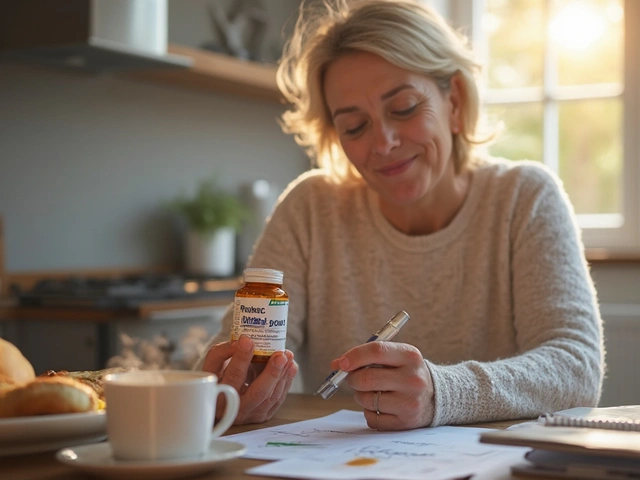Is Your Runny Nose an Infection or Allergy? How to Tell
September 27 2025Skin care: simple, safe steps for healthier skin
Skin care doesn't have to be complicated. Start with a basic routine: clean, treat, protect. Use a gentle cleanser twice daily, pick a moisturizer that matches your skin type, and apply sunscreen every morning. If your skin is oily, look for oil-free, non-comedogenic products. If it's dry, choose heavier creams with ceramides or hyaluronic acid.
Active ingredients matter. For acne, benzoyl peroxide and salicylic acid work well for many people; use them one at a time to avoid irritation. For anti-aging, retinoids boost collagen and cell turnover, but they can cause dryness and sun sensitivity—start slowly and use sunscreen. Niacinamide helps redness and oil control while being gentle enough to pair with other actives.
Be careful with prescription topical medicines. Topical steroids, antibiotic creams, and prescription retinoids can be very effective but need correct use. Follow your prescriber's instructions and ask your pharmacist about interactions, side effects, and how long to use them. If a product makes your skin burn, swell, or blister, stop and contact a healthcare professional.
Patch testing saves you trouble. Apply a small amount of any new product behind your ear or on your forearm for three days. No redness or itching? You're probably fine. If you get a reaction, stop immediately. This is especially helpful when trying fragrance, essential oil blends, or concentrated acids.
Sunscreen is non-negotiable. Use broad-spectrum SPF 30 or higher every day, even on cloudy days. Reapply every two hours when you're outside, and more often if you swim or sweat. Sunscreen prevents sunburn, slows aging, and cuts skin cancer risk. Wear hats and sunglasses for extra protection.
Keep routines short and consistent. Too many products often cause more harm than good. Aim for one gentle cleanser, one targeted treatment (like a retinoid or acne spray), one moisturizer, and daily sunscreen. Add spot treatments only as needed.
Lifestyle choices influence skin health. Hydrate, eat balanced food with fruits, vegetables, and healthy fats, and get enough sleep. Smoking narrows blood vessels and speeds aging; quitting helps your skin fast. Exercise increases blood flow and skin repair.
If over-the-counter options don't help, seek professional care. A dermatologist can diagnose conditions like eczema, rosacea, fungal infections, or severe acne and recommend prescription treatments or procedures. Pharmacists are great for quick advice on OTC options, side effects, and safe combinations.
Products and labels can be confusing. Look for "non-comedogenic" if you break out, "fragrance-free" if you're sensitive, and "broad-spectrum SPF" on sunscreens. Avoid high concentrations of multiple active acids at once. Start slow, observe results for several weeks, and adjust.
Good skin care is steady, simple, and safe. Pick a routine that fits your life, read labels, patch test new items, protect your skin from the sun, and ask healthcare pros when you need help.
Store products in a cool dry place, close caps tightly, and toss creams after their expiry or if smell changes. Never share eye makeup. Small habits like these cut infection risk and keep your routine working as it should. Stay curious.
 28 Apr
28 Apr
Microneedling for Mottled Skin Discoloration: Real Results and Surprising Perks
Curious about why microneedling is popping up as a go-to solution for mottled skin discoloration? This article breaks down what actually happens to your skin when you try microneedling, explains why it helps patchy uneven skin, and shares real tips for getting the best results. We’ll dig into what makes this treatment stand out, what to expect during recovery, and key things to ask a provider before booking. Handy do’s, don’ts, and practical facts included.
Read More...




